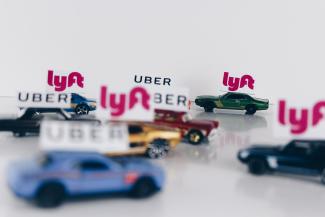
Technology and Retirement
This is an exciting time for retirees when it comes to technology. It seems like every few months there is some new widget or thingamabob that younger generations are going crazy about. And although new technology might seem intimidating at first, these technologies could directly improve your retirement. The following are a few examples:
Uber/Lyft:
Uber and Lyft are two popular telephone applications that connect private drivers to anyone who needs a ride. They are usually much cheaper and speedier than taxis, and members of the retired community have found plenty of methods to take advantage of these apps.
When retirees go on vacation, some would rather get an Uber/Lyft from the airport to their hotel, as opposed to renting a car. Other retirees would rather let an Uber/Lyft drive them to and from church in the evening when it’s too dark or too icy for them to drive comfortably.
In extreme cases, some retirees have given up their car completely, relying on Uber/Lyft to get from point A to point B. Given the costs of owning a car (the purchase, insurance, registration, taxes, maintenance, repairs, tires and fuel) it is not totally farfetched to think that these retirees are saving money in the long run.
So, if it’s just a lift from the airport, or a complete lifestyle change in not owning a car, retirees are finding ways to improve their lives using these new services.
Google Home/Amazon Echo:
Google Home and Amazon Echo are new ‘smart speaker assistants’ that allow you to speak to ‘Google Assistant’ or ‘Alexa.’ By talking to them, you can connect and use multiple devices in your house using only your voice, including your light switches, coffee maker, entertainment system, thermostat, security system and even your dog or cat feeder.
As more partners develop programs for Home and Echo, experts are expecting these types of products to be very beneficial for retirees. Companies have already created programs that remind retirees about their appointments and/or when to take medications.
Other firms are developing apps that connect to a heart monitor, which can send alarms to EMS personnel or family members. Some seniors are using Home and Echo to order an Uber or get pizza delivered.
And for the couples who love to be right all the time, Home and Echo are connected to smart artificial intelligence which can respond to trivial questions. Next time you want to argue about how old Betty White is, all you have to do is ask Home or Echo.
Telehealth:
Modern technology in remote health monitoring has made great strides in recent years. The ability to measure how much exercise you get every day, your heart rate or your blood sugar level is making it much easier for medical professionals to remotely monitor and share test results almost in real time.
Some medical facilities are even using iPads or tablets to have appointments with their patients via video conference after a review of all the vitals they receive remotely. This type of remote practice might give retirees the flexibility of not having to drive all the way to the doctor’s office, while still receiving the care they need. Another benefit is that medical practitioners might be able to see more patients than if they brought the patients to their office. Overall, the idea might seem strange to some, but it could be a benefit to retirees and medical professionals.

